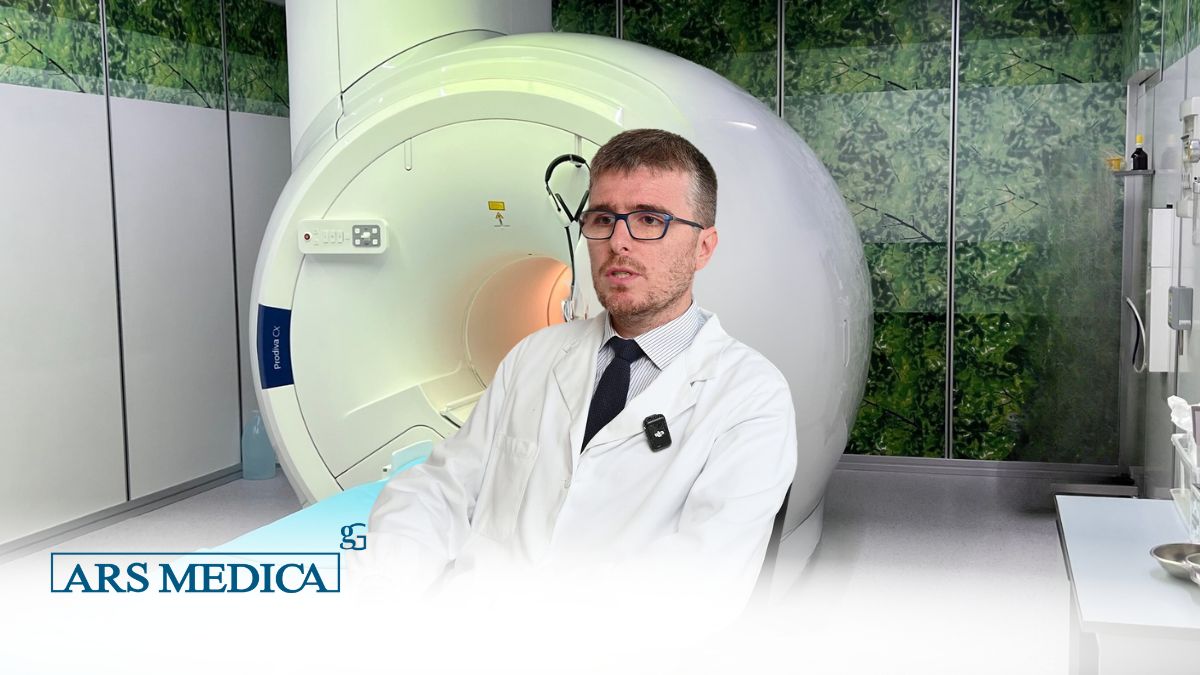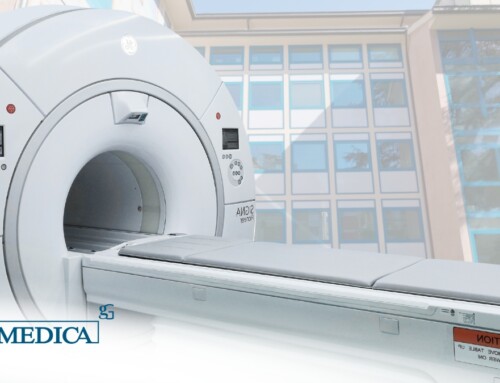
Articolo del 10/04/2025
Multiparametric magnetic resonance imaging (mpMRI) of the prostate is a highly advanced diagnostic technique that is becoming a cornerstone in the detection, evaluation, and management of prostate conditions—particularly prostate cancer.
Below are answers to some of the most frequently asked questions patients have about this important examination.
What is multiparametric MRI of the prostate, and why is it prescribed?
We discuss the topic with Dr. Armando Fusco, Head of Diagnostic Imaging at Ars Medica Clinic.
Multiparametric MRI is a non-invasive imaging test that uses magnetic fields and radio waves to produce highly detailed images of the prostate. The term “multiparametric” refers to the combination of different imaging sequences—T2-weighted, diffusion-weighted imaging (DWI), and dynamic contrast-enhanced imaging (DCE)—which together provide comprehensive information about the prostate’s structure and vascularization.
mpMRI is primarily used to:
-
Detect suspicious lesions that may indicate prostate cancer
-
Assess the extent and stage of any identified tumor
-
Guide targeted biopsies to specific, high-risk areas
-
Monitor patients under active surveillance programs
-
Follow up on patients after prostatectomy or other treatments
How long does the exam take? Is it painful? Are there any contraindications?
The procedure is completely painless, though it requires the patient to lie still for the duration, which typically lasts 25 to 40 minutes. Some patients may experience mild claustrophobia, but this can usually be managed with assistance from the medical staff.
mpMRI is not suitable for:
-
Patients with non-MRI-compatible metallic implants (e.g., certain pacemakers or cochlear implants)
-
Individuals with severe, unmanaged claustrophobia
However, Ars Medica offers sedation options for patients who may require it.
What are the advantages compared to other diagnostic methods?
Compared to traditional approaches such as transrectal ultrasound, mpMRI offers several significant advantages:
-
Greater accuracy in identifying suspicious areas
-
Enables targeted biopsies, reducing the need for unnecessary tissue sampling
-
Provides a better assessment of tumor staging, aiding in treatment planning
Is any special preparation required?
Yes, preparation protocols may vary slightly depending on the diagnostic center, but they typically include:
-
Fasting for 4–6 hours prior to the exam
-
Providing recent PSA test results
-
Administration of a microlax enema to empty the rectum, which enhances image clarity
-
Removal of all metal objects (e.g., jewelry, removable dental prostheses) to avoid interference with the magnetic field
Is contrast agent used?
Yes, the examination involves the intravenous injection of a gadolinium-based contrast agent, which enhances the ability to evaluate prostate blood flow—particularly in suspicious regions. This is vital for distinguishing between benign and malignant lesions.
If you have a history of allergies or adverse reactions to contrast agents, be sure to inform your doctor beforehand.
Are there any side effects?
mpMRI is generally very safe and well tolerated. Side effects are uncommon. In rare cases, patients may experience an allergic reaction to the contrast agent. Any unusual symptoms after the exam should be promptly reported to your physician.
How long does it take to receive the results?
At Ars Medica, results are typically available within 24 to 48 hours. A radiologist will review and interpret the images in detail, following the latest guidelines from leading European scientific associations. Your referring physician will then discuss the results with you.
Does mpMRI replace the biopsy?
No, multiparametric MRI does not replace the biopsy but can significantly enhance its effectiveness. By clearly identifying areas of concern, it allows for precise, targeted biopsies, potentially reducing the number of unnecessary samples.
Multiparametric MRI of the prostate is a sophisticated and reliable imaging tool that plays a vital role in the early diagnosis and treatment planning for prostate disease.
If your doctor has recommended this exam, don’t hesitate to ask questions and express any concerns. Follow the preparation instructions carefully to ensure the most accurate and effective results.









